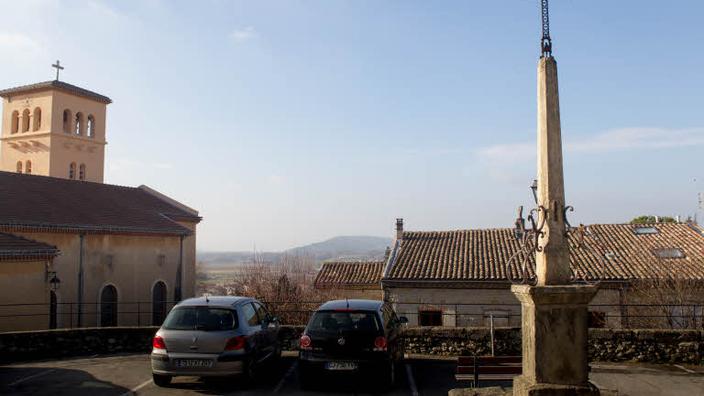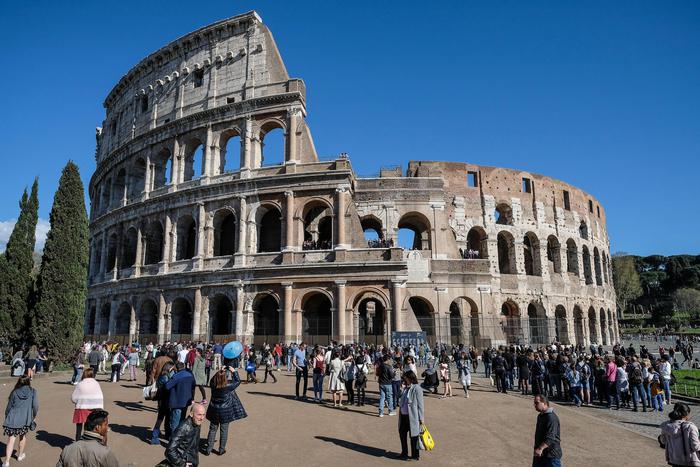Sundar Ramanadane is a normalien, a senior civil servant and currently works in the territorial civil service.
The village where I grew up was built along the Orvanne, it stretches from the river on its south bank, climbing a hill. It was built by Louis VII, on a checkerboard plan, by deploying a whole urban planning genius that is not usually associated with the Middle Ages, and by guaranteeing its inhabitants access to water every day. Street corner. Remarkably, the weather vane above the half-Roman, half-Gothic church not only displays a rooster, but also a pig's head: during an epidemic of plague, the inhabitants of this rather wealthy royal village refused to neighboring towns access to their Hôtel-Dieu, which provoked the indignation of the bishop and the sanction of wearing as a penance and until the end of time the symbol of the pig,as if to remind everyone who passes by the parable of the rich man and Lazarus.
My village had its heyday in the Middle Ages, but it recovered with difficulty from the Hundred Years War, and the surrounding countryside is full of Romanesque and solitary chapels, the last vestiges of the villages of which they were the center and which were razed.
The Wars of Religion dealt it an additional blow, before the phylloxera finished making it completely and at the end of the 19th century an ordinary village of a few hundred souls, which gained additional inhabitants at the end of the 20th century. , with the rise of the peri-urban area.
Read also “Will the France of villages disappear?”
I cannot thank this village enough for the anchorage it gave me since my parents settled there: we from Pondicherry have this pride in being born and staying French far from France, but I have For my part, while living here, I received a complementary rooting that it is no longer fashionable to celebrate because it refers to the one that Barrès evokes so well in his novels. Likewise, France has so much to celebrate in the contribution of its tens of thousands of villages and their mayors, who have been able to effectively mesh the territory and constitute the basic unit of the Nation, then of the Republic and of democracy. .
I often go back there, at an interval sufficiently far apart to notice the permanence and the changes.
We must praise the constant dedication of its elected officials who work hard to keep the village alive, ensure that the few local shops continue to exist and organize events that bring many visitors.
Almost every time I go to church to collect myself there, and it has charm: it has been preserved in its original form since the 1950s because - paradoxically - the dechristianization and the reduction in the number of Masses to two per year (at the Assumption and at St Vincent, patron saint of this once wine-growing village) have preserved it from the aesthetic and liturgical daring which characterizes Christianity in the West, since the second half of the 20th century.
The ace !
My village now looks so much like so many others: the town is incapable, due to the small number of inhabitants and the insufficient resources that this entails, of maintaining its heritage which is doomed, for lack of divine intervention, to ruined.
Sundar Ramanadane
For ten years however, part of the ceiling, under the altar of the virgin continues to collapse without anything being done and lately, the altar had to be stripped, and an entire wing of the church condemned.
The ace !
My village now looks so much like so many others: the town is incapable, due to the small number of inhabitants and the insufficient resources that this entails, of maintaining its heritage which is doomed, for lack of divine intervention, to ruined.
This example is added to so many others who have finally convinced me of the irrelevance of the city of less than 20,000 inhabitants to effectively administer the territory, offer basic services there, respond to the challenges of our time, and ensure the development of its inhabitants: a teenager living in a village like mine only has school transport to get around and has access neither to a media library, nor to sports or cultural facilities without a long transport time and depending on whether or not his parents have the B permit: these are also the things that he will end up paying once he enters the superior.
Guilluy's intuition is correct: in these villages where the middle and working classes have come to live the peri-urban dream, we do not have access, at equal pay, to the public services offered by even precarious urban spaces; and the inhabitants of disadvantaged urban areas have, in terms of capabilities, much more supply than those, even more affluent, of rural areas: access to sports and cultural facilities, and above all to public transport which allows them to go to study elsewhere, and which offer a chance for emancipation and a source of opportunities. Conversely, in the small villages of peripheral France, the horizon is much smaller. It is in this rural context that the feelings of downgrading, and that of paying taxes for nothing,characteristics of the yellow vests movement have been born and flourish.
The principle of equality before public charges is generally only rarely invoked, although it could be used for a large number of claims.
Sundar Ramanadane
It is in fact, and at the bottom of a principle that is not often invoked in the public debate, that we are talking about here: the principle of equality before public office is in fact generally only seldom invoked when it could serve a significant number of claims. In the present case, it is this principle that questions a territorial organization which means that a little less than half of French people (49.8% in 2017 according to INSEE) live in a city of less than 10,000 inhabitants. For equal wages and family conditions, we pay more or less the same taxes in the city center, in the urban suburbs, and in rural areas, but the reality is that in the first two cases, access to public services materializes them more. . It is also this feeling ofinequity which may have led some French people to feel aggrieved in recent years.
To read also Guillaume Tabard: "Rurality, land of mission for the Head of State"
There is no question here of questioning rurality, and especially not of questioning mayors and their devoted deputies who often do the impossible for their citizens, but we have to admit that the very system of the small town does not allow us to respond to the challenges of our time (transport and soft mobility, ecological transition, etc.) nor does it save the local heritage from ruin, or more importantly perhaps, to ensure the effectiveness of the equality of all before the tax, as the first democrats wanted it in article 13 of the Declaration of the rights of man and of the citizen.
We have been able to try to give rurality the means to act in the French way, that is to say by adding an additional level by the creation of EPCI allowing in theory the municipalities to pool their means and carry out policies in concert.
In reality, ideological oppositions, and sometimes even people, often mean that these EPCIs are minimum structures, which only too rarely take hold of their so-called optional skills such as culture and heritage, sport, mobility and transport, housing, etc.
Faced with these dynamics and the challenges of our time, are the small towns which have admittedly in the past allowed the Nation and then the Republic to take root and become concrete concepts really still legitimate?
Sundar Ramanadane
The dynamics affecting rurality make it today a space in crisis, even often in impoverishment, and affected by desertification which does not only affect the medical field, but which also covers areas such as access to public services. , to material, immaterial and spiritual goods, as well as to capabilities or opportunities in life. Faced with these dynamics and the challenges of our time, are the small towns which have admittedly in the past allowed the Nation and then the Republic to take root and become concrete concepts really still legitimate? We often ask ourselves in the public debate the question of the existence of Departments, but never that of the relevance of keeping so many small municipalities: they are nearly 36,000 in France, against around 10.000 among our German, Italian, Spanish and British neighbors.
It is the opinion of the author of these lines that asking the question not of the number of municipalities, but of the minimum size that would allow them to fully exercise their missions, to respond to the challenges of our time and guaranteeing real equality before tax is essential for revitalizing rural life, if not for bringing greater harmony to French society.








